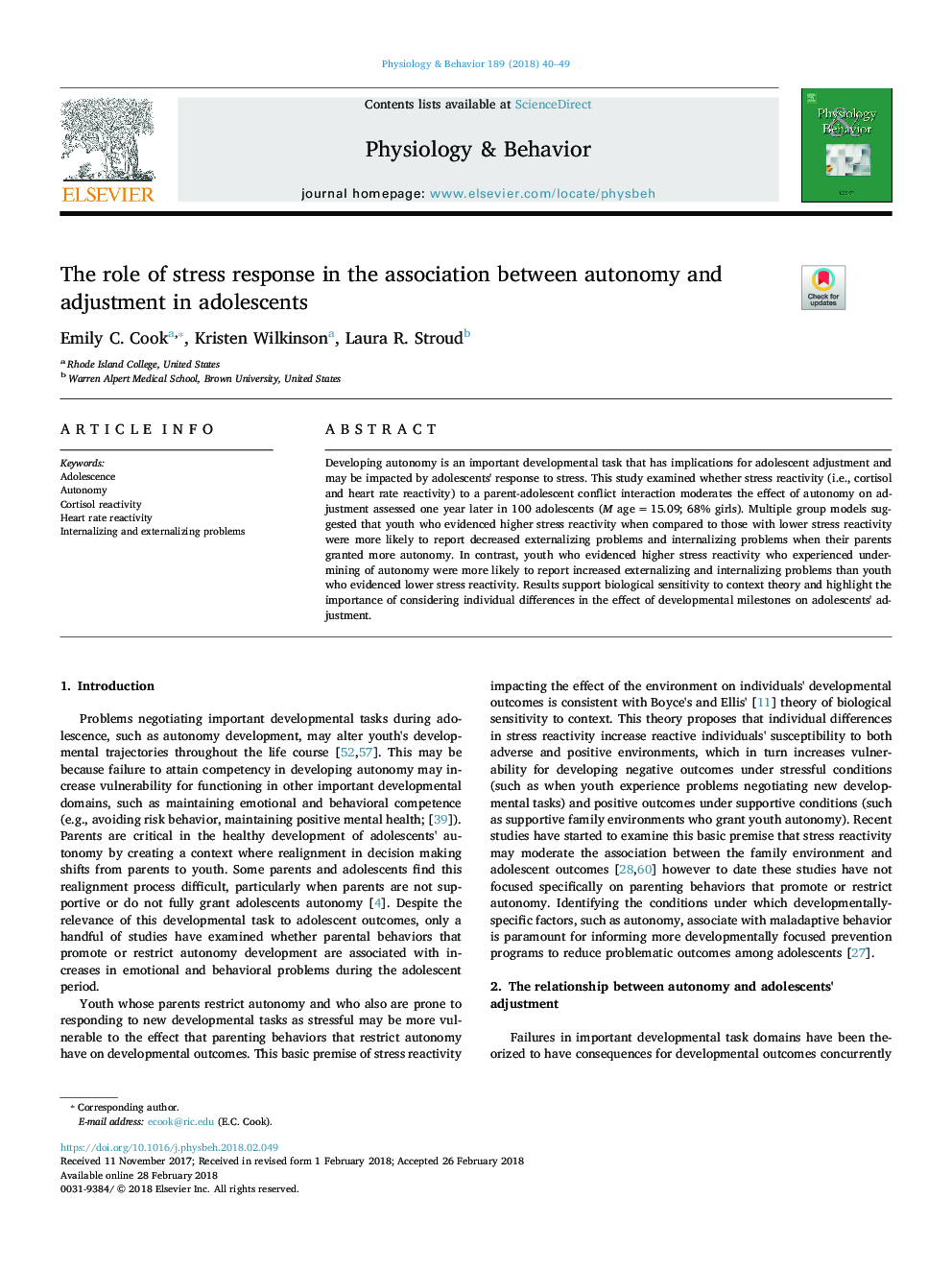| Article ID | Journal | Published Year | Pages | File Type |
|---|---|---|---|---|
| 8650538 | Physiology & Behavior | 2018 | 10 Pages |
Abstract
Developing autonomy is an important developmental task that has implications for adolescent adjustment and may be impacted by adolescents' response to stress. This study examined whether stress reactivity (i.e., cortisol and heart rate reactivity) to a parent-adolescent conflict interaction moderates the effect of autonomy on adjustment assessed one year later in 100 adolescents (M ageâ¯=â¯15.09; 68% girls). Multiple group models suggested that youth who evidenced higher stress reactivity when compared to those with lower stress reactivity were more likely to report decreased externalizing problems and internalizing problems when their parents granted more autonomy. In contrast, youth who evidenced higher stress reactivity who experienced undermining of autonomy were more likely to report increased externalizing and internalizing problems than youth who evidenced lower stress reactivity. Results support biological sensitivity to context theory and highlight the importance of considering individual differences in the effect of developmental milestones on adolescents' adjustment.
Keywords
Related Topics
Life Sciences
Biochemistry, Genetics and Molecular Biology
Physiology
Authors
Emily C. Cook, Kristen Wilkinson, Laura R. Stroud,
